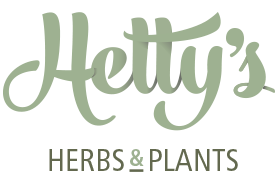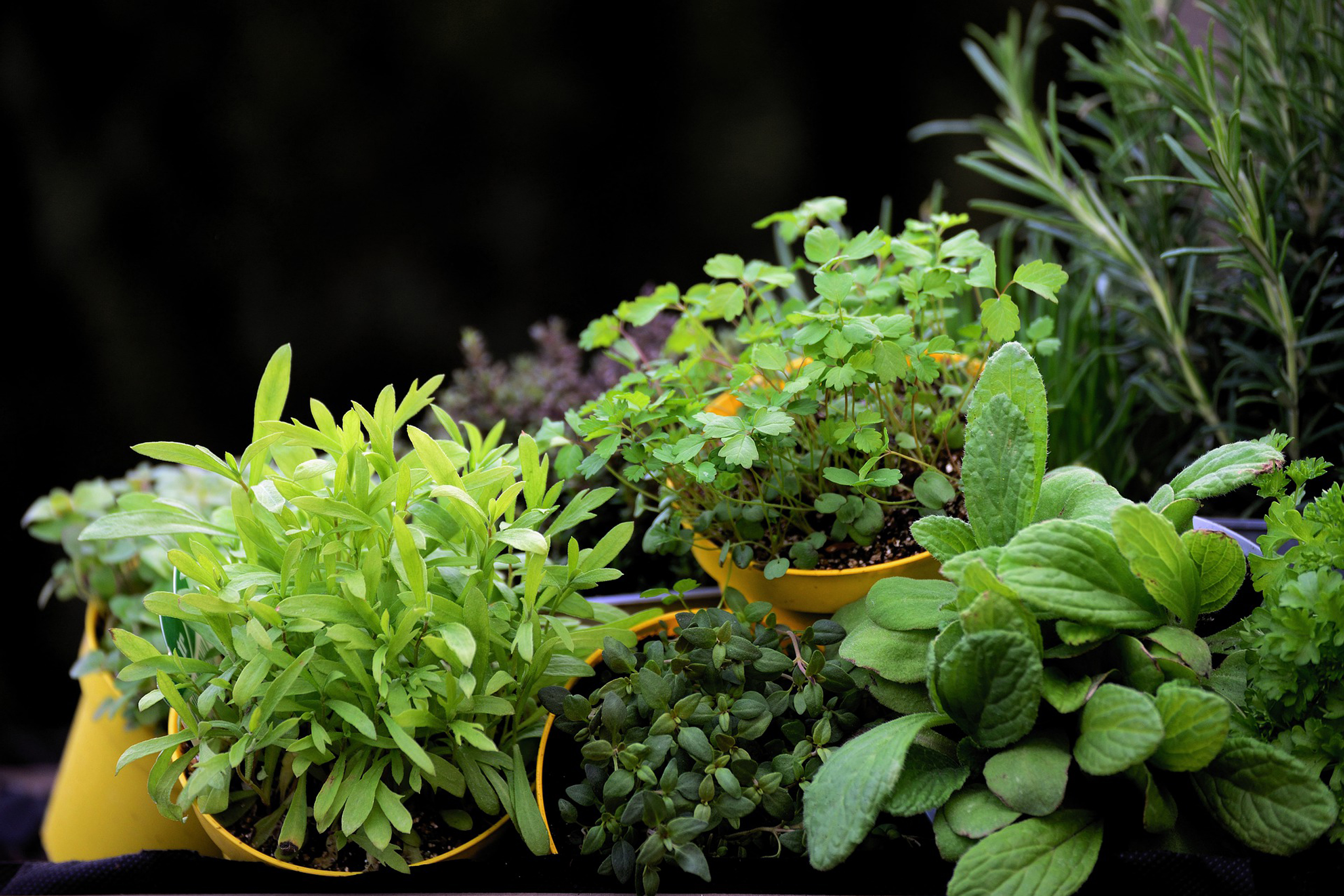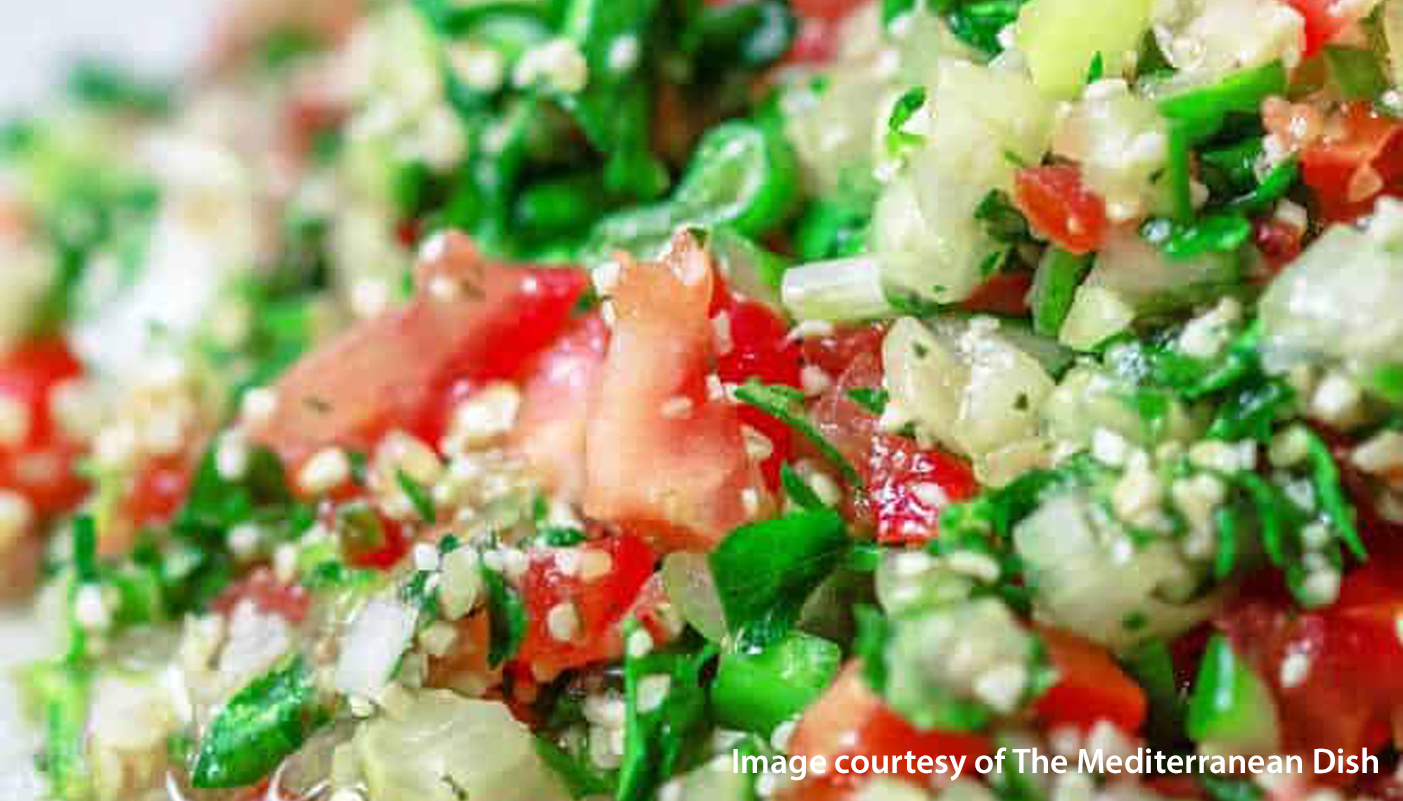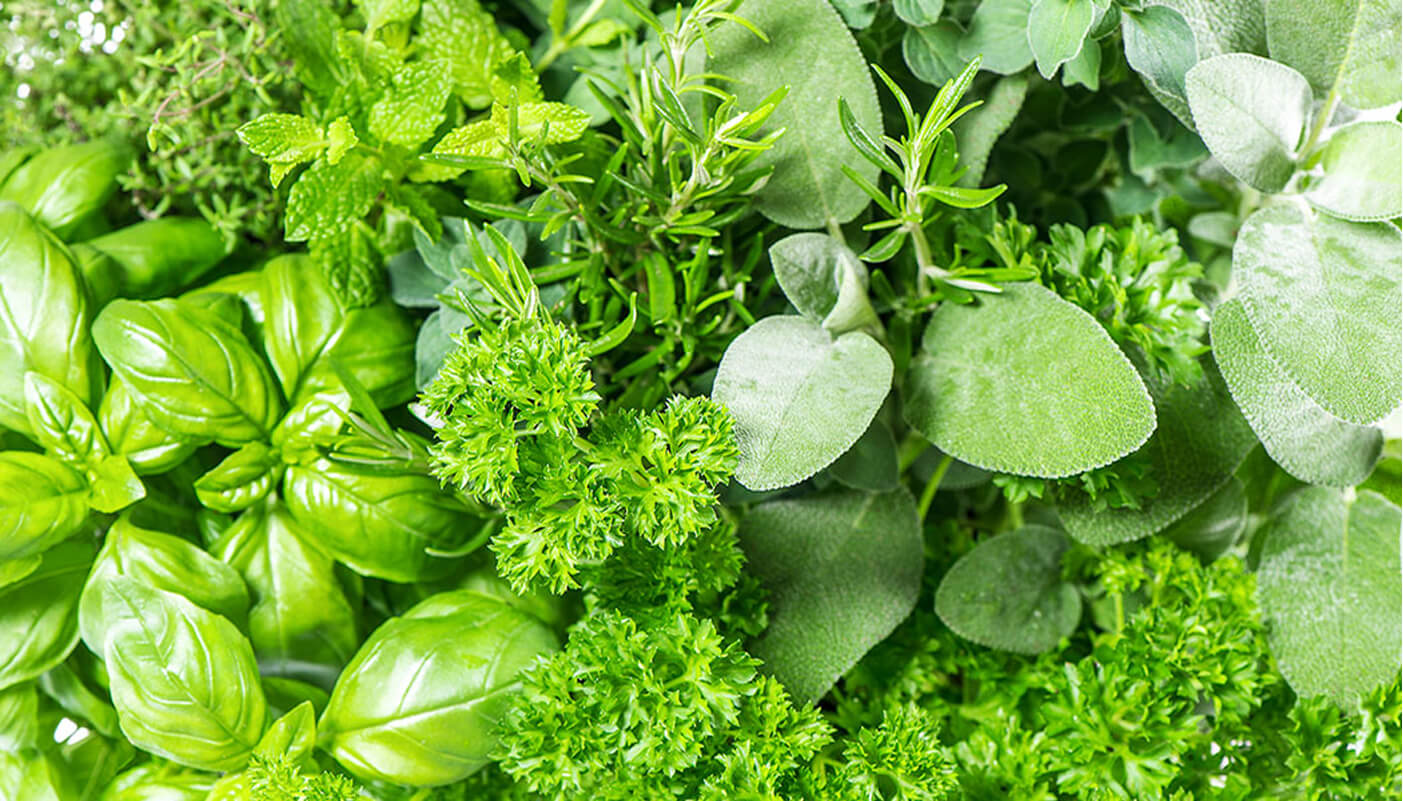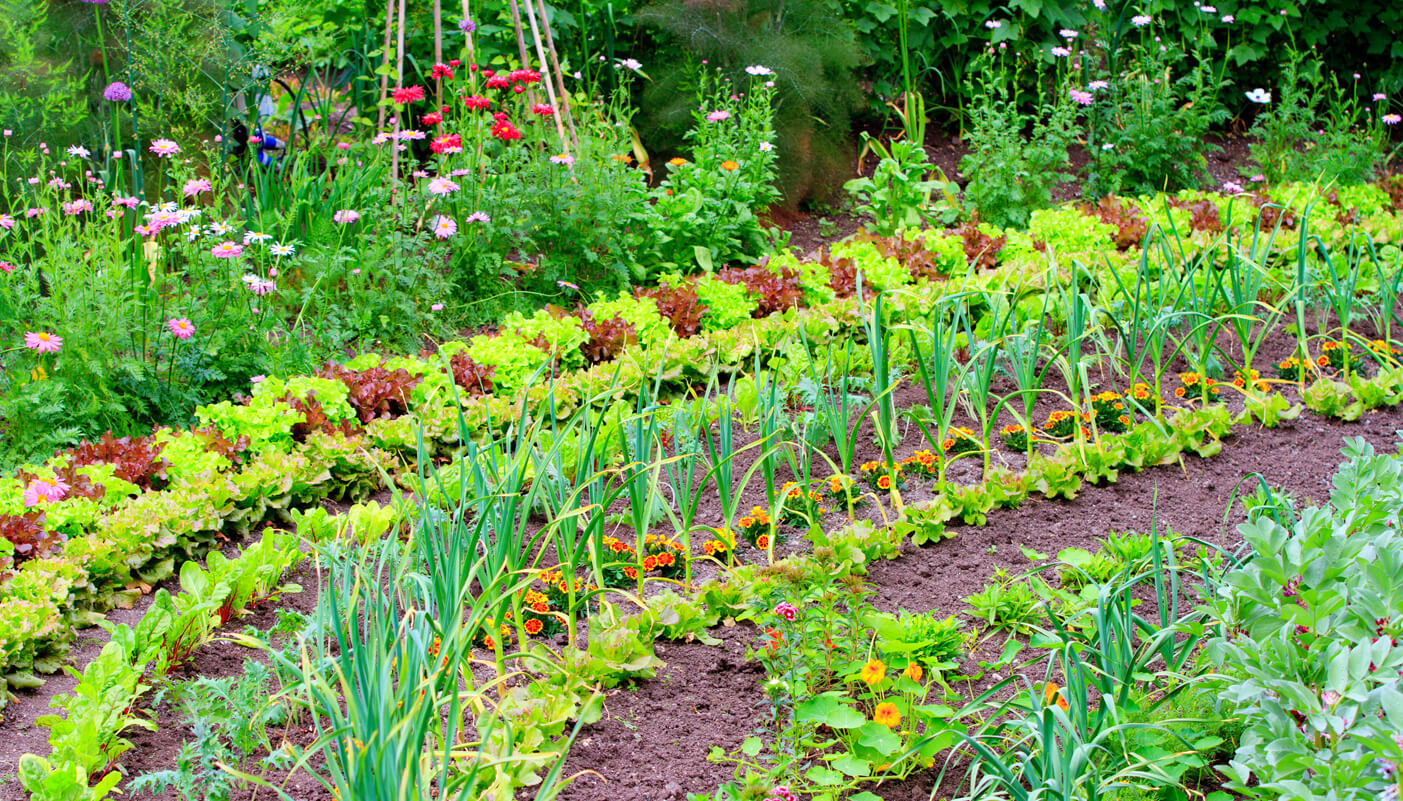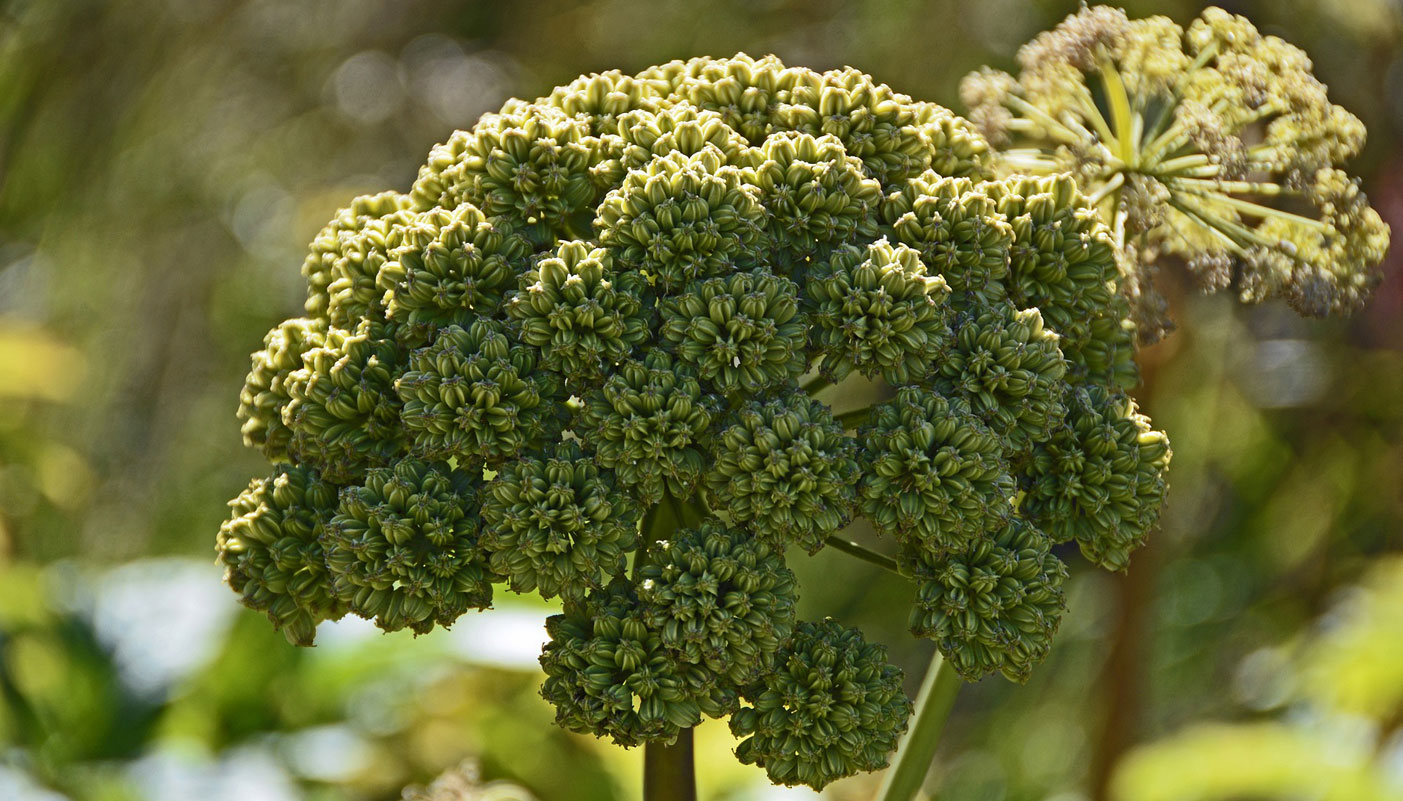Whether you’re growing herbs in a kitchen garden or outdoors, spring is an excellent time to get started. Herbs don’t need much space so make brilliant houseplants. There’s a certain satisfaction that comes from nurturing herbs until it’s time to use them. Growing herbs yourself means fewer trips to the supermarket too. Imagine having that fresh basil on hand for a last-minute pasta dish or ramping up your roast with rosemary you’ve grown yourself.
When should you plant herbs in the spring?
According to rhs.org “Sow seeds of herbs such as basil, chives and parsley under glass with or without heat from January to early April. Additionally, as soil conditions allow, you can sow a seed of chervil, coriander and dill, directly into the soil outdoors from March onwards”
If you’re planting indoors you won’t need to be so mindful of weather conditions. Young plants should, however, be protected from cold areas and drafts. A nice sunny windowsill is often the perfect place to grow some amazing spring herbs. Once the days get warmer and the sun stronger you should be careful to prevent herbs from becoming dry or scorched. Provide shade if the strong sun is in direct contact for long periods.
How do you start a herb garden in the spring?
The first rule of starting your own herb garden is sunlight. Herbs love light, especially sunshine. A windowsill with a few hours of direct sun is perfect. Select whichever pots fit your style and the space they’re going to live in. Water your herbs well and enjoy watching them grow.
If growing spring herbs outdoors, again, sunlight is key. Choose a sunny spot that will also protect the herbs from strong winds such as a patio corner. If planting into large planters or directly into the ground, choose a good quality compost. Rainwater will generally be sufficient for outdoor herb gardens but during the drier months, you’ll need to keep an eye on moisture levels in your soil.
Growing herbs in pots for beginners
Most spring herbs can be grown in pots or containers. You can either plant from seeds or perhaps easier for beginners, from young but established plants. If buying established plants, beware of those sold in large supermarkets etc as they will generally not be used to outdoor conditions.
Once your herbs are established, they can be moved outdoors. Choose containers that are fairly deep to allow the roots plenty of room. This also means they will be able to survive in the long term, giving you less risk of damaging roots when moving plants.
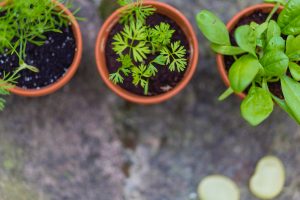
Creating a spring herb garden
In order to create a successful spring herb garden, you should:
- Use a gritty, well-drained compost or seed/potting compost.
- Keep the compost moist, not sodden.
- Use a balanced fertiliser to encourage the growth of leaves.
- Consider plans for overwintering herbs such as covering or moving indoors.
- Avoid watering leaves, instead water at the root.
Growing herbs
Here’s a brief guide of some of the most popular herbs and how you can succeed when growing them. For ideas on using your successfully grown herbs see our Herbs and Plants Recipes or find loads of tips and meal ideas using homegrown herbs from @kitchenbuddy on Twitter.
Basil
- Grows best in rich, well-drained to fairly dry soil in a sunny spot.
- Is susceptible to the cold so only plant Basil outside after all danger of frost has passed
- Pinch off growing tips to encourage a bushy plant & pick the leaves to use during the growing season.
Chives
- Thrives in rich, well-drained soil but can tolerate wet conditions.
- After flowering, cut right down to promote fresh growth.
- Leaves, bulbs and flowers can all be eaten.
Coriander
- Likes well-drained soil, lots of sun but can be more productive in partial shade.
- Leaves and roots can be used in cooking.
- Seeds add delicious flavouring to curries and pickles.
Dill
- Does well in well-drained neutral to slightly acidic soil.
- Leaves are usually cut from spring to summer and can be used fresh or dried.
- Seeds can be harvested in summer and used for cooking.
Mint
- Best grown in a container due to its rapid and vast growth.
- Likes rich, moist soil in a partly shaded area.
- The aromatic leaves can be used in cooking or to make mint tea.
Parsley
- Prefers rich, well-drained neutral to slightly alkaline soil.
- Leaves should be picked before flowering.
- This versatile herb is widely used in many cuisines.
Rosemary
- Shelter from cold conditions in a sunny area.
- Ideally likes natural or alkaline soils.
- Leaves can be harvested and used fresh or dried to add deep flavour.
Thyme
- This hardy herb can thrive even in stony, poor-quality soils.
- Should be trimmed after flowering to promote bushier growth.
- Leaves can be used fresh or dried to add flavour to a variety of foods.
What do you do with herbs in the spring?
Herbs are some of the earliest perennials you’ll see once spring is in the air. To ensure a successful growing season and subsequent harvest, you’ll need to take a few steps in early spring. Colder weather can often return unexpectedly so early arrivals will need to be covered with a loose layer of compost or soil to protect them. A few inches is perfect.
The next thing you’ll need to do is trim any stalks or leaves leftover from last year. Now is also the time to loosen the top layer of soil. Clear any winter mulch and add some nutrient-rich compost.
Some herbs may have outgrown their pots. Early spring is the ideal time to re-pot. To do this simply remove from the current pot, cut away the lower quarter of the root bulb and replant in a larger container. Alternatively, you can carefully split the plant and root bulb into two or more and re-pot in smaller containers. Ensure you re-pot using fresh compost or soil that is suitable for your herb.
Buy growing herbs
When buying growing herbs, it’s important they’ve come from a reputable retailer to ensure the best start. Herbs which have been nurtured properly in their early stages are more likely to thrive once at home. Our herbs are grown by specialists who have been growing them for over 30 years. They grow herbs in a combination of modern glasshouses and outdoors. This allows them to produce the best quality plants and us to sell you herbs with greater longevity.

